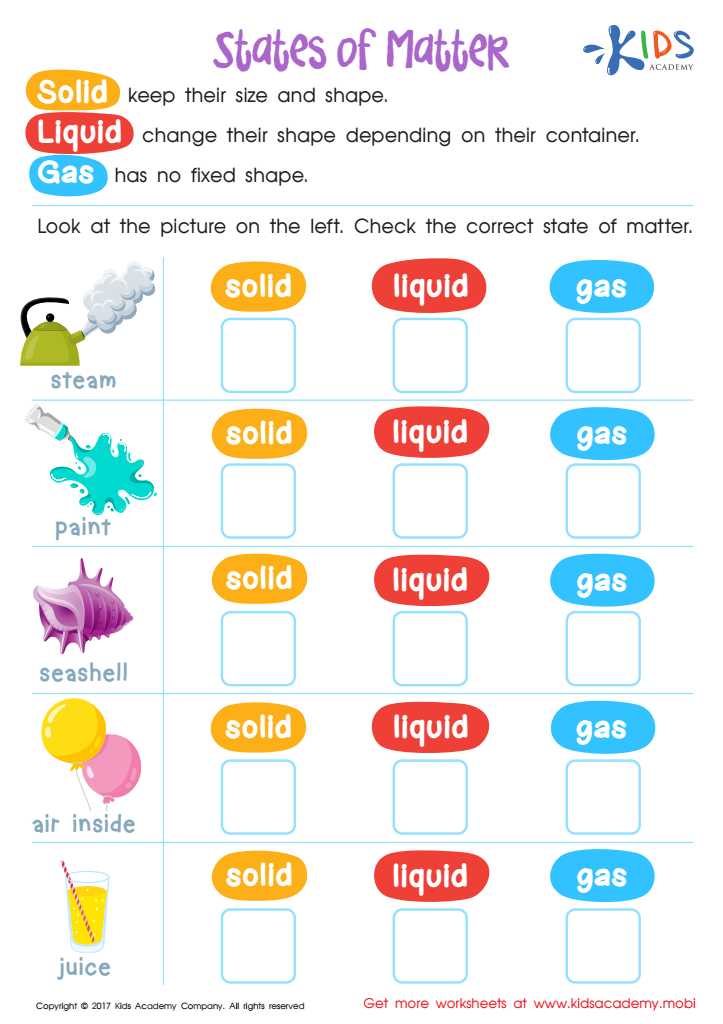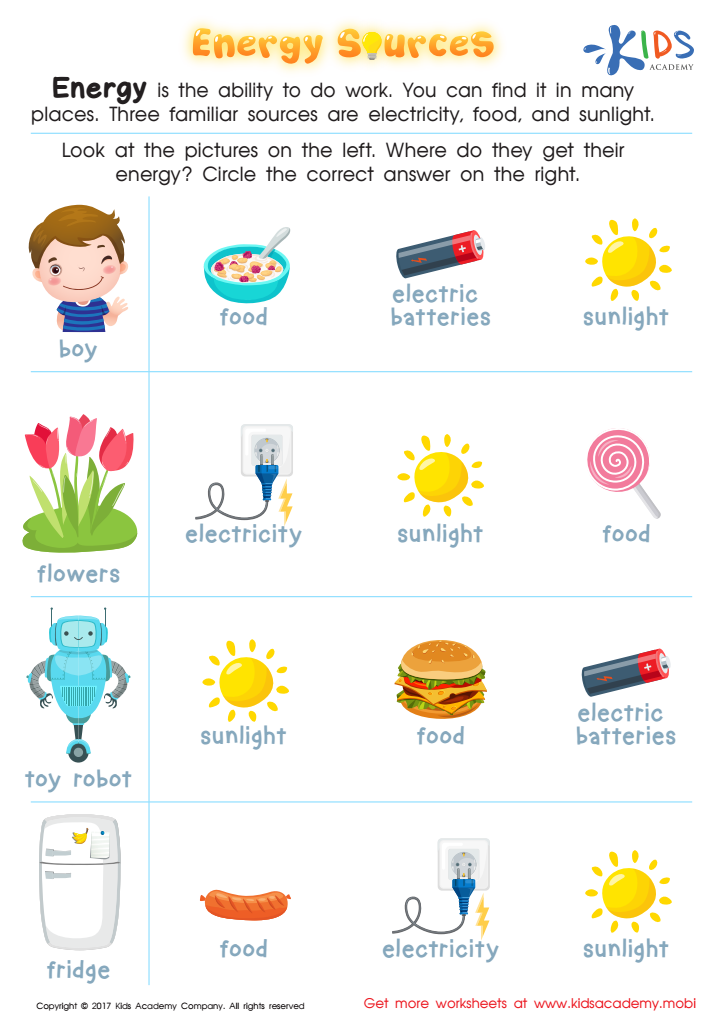Physical Science Worksheets for Ages 7-9
3 filtered results
-
From - To
Explore our engaging Physical Science Worksheets designed specifically for children ages 7-9! Perfect for enhancing your child's understanding of the world around them, these worksheets cover key concepts like matter, energy, and simple machines through fun activities and captivating illustrations. Each resource encourages hands-on learning, encouraging curiosity and critical thinking skills. With carefully crafted questions and interactive exercises, your young learners will enjoy exploring scientific principles in a clear and enjoyable way. Ideal for homeschooling, classroom settings, or extra practice at home, our worksheets make physical science accessible and exciting for kids. Dive into the wonders of science today!


Physical Science: States of Matter Worksheet


Sink or Float Printable


Energy Sources Printable
Physical science is crucial for children aged 7-9 as it lays the foundation for critical thinking and problem-solving skills. At this stage, children are naturally curious, and physical science appeals to their inquisitiveness about the world around them. Engaging with concepts such as matter, energy, forces, and motion helps students make sense of everyday phenomena, fostering a sense of wonder and sparking lifelong interest in science.
Teaching physical science also supports various developmental areas. It enhances cognitive abilities by encouraging observation, experimentation, and reasoning. Parents and teachers can integrate hands-on activities that make abstract concepts tangible, reinforcing learning through play and exploration. Additionally, physical science education promotes collaboration, as children often work in groups to conduct experiments, building teamwork skills essential for future success.
Moreover, early exposure to scientific concepts prepares students for more advanced topics in later years. This foundation is vital, as science and technology increasingly shape our world. By nurturing an interest in physical science, parents and teachers equip children with the knowledge and skills to navigate their environment critically and creatively, inspiring them to ask questions, seek answers, and build a brighter future.
 Assign to My Students
Assign to My Students















